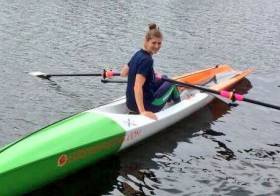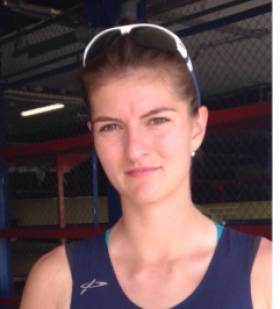Displaying items by tag: World Coastal Rowing
Ireland Men Join Women in A Finals at World Coastal Rowing
#Rowing: Ireland will have crews in five A Finals at the World Coastal Rowing Championships in Hong Kong on Sunday. Men’s crews came through well on Saturday, qualifying two solo scullers and Myross in the coxed quadruple. The Arklow double of Alan Goodison and John Whooley had made it through as a fastest loser in the double in Friday’s session. Two women’s coxed quadruples and four women’s solo scullers had also made it through on Friday.
World Coastal Rowing Championships, Hong Kong, Day Two (Ireland crews)
Men
Quadruple, coxed – First Eight to A Final; rest to B Final: Heat One: 7 Myross 16:22.17; 11 Galley Flash/Kilmacsimon 17:34.57.
Double – B Final: 7 Kilmacsimon/Ring 19:35.10; 13 Courtmacsherry 21:05.76; 14 St Michael’s, Dublin 21:41.30.
Solo – First Five to A Final; 7 plus to B Final; 11 plus B Final or eliminated: Heat Two: 13 Portmagee 23:14.19. Heat Three: 3 Bantry (A Hurley) 20:02.92; 5 Galley Flash (J Harrington) 20:40.77; 13 Myross 25:21.83.
Women
Double - First Eight to A Final; rest to B Final – Heat Two: 9 Castletownshend 20:36.64; 11 Arklow (Kinsella/Kinsella) 21:47.40; 13 Arklow (Jordan/Reid) 22:54.85.
Mixed
Double – Heat One – 7 to 10 to B Final: 10 Kilmacsimon 19:21.81
Silver for Ireland's Dukarska at World Coastal Rowing
#Rowing: Ireland’s Monika Dukarska took silver at the World Coastal Rowing Championships in Thonon on Lake Geneva in France. The Killorglin woman held second for virtually the entire race behind Diana Dymchenko of Ukraine, who shot into an early lead and held it all the way to the end to take gold. The two fought a battle at the front of the field, but Dukarska could not close the clearwater gap Dymchenko had opened.
Earlier, Castletownbere had finished 14th in the women's coxed quadruple - they were moved up one place in the revised resutls.
World Coastal Rowing Championships, Thonon, France, Day Two (Selected Results; Irish interest)
Men
Solo – A Final: 1 Italy (Padova; S Martini) 28:13.67; 18 Ireland (Arklow; J Casey) 32:12.72; 20 Ireland (Castletownbere; A Sullivan-Greene) 33:14.91; 21 Ireland (Bantry; A Hurley) 34:22.78.
Women
Quadruple, Coxed – A Final (Revised Result): Greece (Nautical Club of Thessaloniki) 27 min 34.98, 2 Italy (CC Saturnia) 27:41.49, 3 Germany (Erster Kieler RC v 1862e V) 27:49.29; 15: Ireland (Castletownbere: E Hanley, C O’Regan, O Gilsenan, M Sheehan; cox: C Connolly) 30:42.58. B Final: 1 Ireland (Galley Flash) 20:46.06, 2 Ireland (Cairndhu) 20:56.34.
Double – B Final: 2 Arklow 21:08.80.
Solo – A Final: 1 Ukraine (Concord; D Dymchenko) 29:58.40, 2 Ireland (Killorglin; M Dukarska) 30:30.78, 3 France (Team Chablais Aviron; E Alfred) 30:54.44; 15 Ireland (Arklow; S Healy) 34:16.49. B Final: 2 Ireland (Killorglin: J Lee) 23:39.30.
Ireland Send Twenty-Three Crews to World Coastal Championships
#Rowing: Ireland will send a very big team to the World Coastal Rowing Championships in Thonon in France from October 13th to 15th. Twenty-three crews from nine clubs will represent the country. The top contender for honours is Monika Dukarska of Killorglin, the defending champion in the women’s single. Arklow, which hosted the recent Irish Offshore Championships, have entered nine crews.






























































